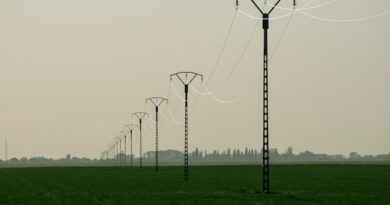Electrical Safety Audit in Roorkee
Introduction
In today’s fast-paced world, electricity is an essential part of our lives, powering almost every aspect of our daily routines. However, while electricity is undoubtedly a boon, it can also pose significant risks if not handled properly. Electrical safety audits play a crucial role in identifying potential hazards and ensuring a secure electrical environment. This article delves into the importance of electrical safety audits in Roorkee, India, highlighting the steps involved in conducting an effective audit to mitigate electrical risks.
Table of Contents
- Understanding the Significance of Electrical Safety
- Exploring the Basics of Electrical Safety Audits
- What is an Electrical Safety Audit?
- Why is it Important?
- The Importance of Electrical Safety Audit in Roorkee
- Electrical Safety Measures in Public Spaces
- Safety Protocols for Commercial Establishments
- Residential Electrical Safety Practices
- Conducting an Electrical Safety Audit
- Preparing for the Audit
- Identifying Potential Hazards
- Evaluating Electrical Systems and Equipment
- Compliance with Electrical Codes and Standards
- Implementing Safety Measures
- Importance of Grounding and Bonding
- Surge Protection Systems
- Electrical Fire Safety Measures
- Safe Electrical Work Practices
- The Role of Technology in Enhancing Safety
- Automation and Smart Systems
- Remote Monitoring and Control
- Predictive Maintenance in Electrical Systems
- Electrical Safety Training and Awareness
- Educating Users about Electrical Risks
- Training for Electrical Professionals
- Creating Safety Awareness Campaigns
- Legal and Regulatory Aspects of Electrical Safety
- Government Regulations and Standards
- Penalties for Non-Compliance
- Liability and Insurance
- Case Studies: Successful Electrical Safety Implementations
- Roorkee’s Safe Public Spaces Initiative
- How a Commercial Hub Improved Electrical Safety
- Residential Complexes Ensuring Resident Safety
- Benefits of Regular Electrical Safety Audits
- Reduced Risk of Electrical Accidents
- Lowered Insurance Premiums
- Enhanced Reputation and Trust
- Addressing Common Electrical Safety Myths
- “Rubber-soled Shoes Make You Invulnerable”
- “Small Shocks are Harmless”
- “Circuit Breakers Eliminate All Risks”
- Conclusion
- FAQs (Frequently Asked Questions)
Introduction
Electrical safety is paramount in Roorkee, as in any other place. It is vital to understand the significance of conducting electrical safety audits to prevent potential hazards and accidents. The article aims to shed light on the importance of such audits, the process of conducting them, and the benefits they offer. Let’s dive deeper into the world of electrical safety audits in Roorkee.
Understanding the Significance of Electrical Safety
Electricity powers our lives, from lighting up our homes to driving industries forward. However, it can also be dangerous, leading to electrical shocks, fires, and even fatalities. This section will explain why prioritizing electrical safety is crucial and how electrical safety audits contribute to a safer environment.
Exploring the Basics of Electrical Safety Audits
What is an Electrical Safety Audit?
An electrical safety audit involves a systematic assessment of electrical systems and equipment to identify potential hazards and ensure compliance with safety standards. It aims to create a comprehensive understanding of electrical risks and recommend appropriate safety measures.
Why is it Important?
Electrical safety audits are essential to prevent accidents, injuries, and property damage. They provide insights into electrical systems’ health, allowing timely corrective actions and reducing the likelihood of mishaps.
The Importance of Electrical Safety Audit in Roorkee
Roorkee, a vibrant city in India, faces its fair share of electrical safety challenges. This section will highlight the significance of electrical safety audits in different settings, such as public spaces, commercial establishments, and residential areas.
Electrical Safety Measures in Public Spaces
Public places like parks, schools, and government buildings must adhere to strict electrical safety guidelines. An electrical safety audit ensures that these spaces are safe for the public, reducing the risk of accidents and ensuring a secure environment for all.
Safety Protocols for Commercial Establishments
In commercial settings, electrical safety audits are crucial for protecting employees, customers, and valuable assets. Implementing proper safety measures enhances productivity and safeguards against electrical mishaps.
Residential Electrical Safety Practices
Residential properties form the backbone of Roorkee’s population. A thorough electrical safety audit for homes ensures the safety of residents, giving them peace of mind and minimizing electrical risks.
Conducting an Electrical Safety Audit
Preparing for the Audit
Before conducting an electrical safety audit, it is essential to plan and gather relevant information about the electrical systems to be assessed. This step lays the foundation for a successful audit.
Identifying Potential Hazards
The audit team must carefully identify electrical hazards, such as faulty wiring, overloaded circuits, and improper grounding, which could lead to accidents or fires.
Evaluating Electrical Systems and Equipment
Assessing the condition of electrical systems, devices, and equipment ensures that they are functioning optimally and without any potential risks.
Compliance with Electrical Codes and Standards
The audit must verify if electrical installations adhere to local and national electrical codes and safety standards to meet legal requirements.
Implementing Safety Measures
Importance of Grounding and Bonding
Proper grounding and bonding of electrical systems protect against electrical surges and create a safe pathway for fault currents.
Surge Protection Systems
Installing surge protection systems safeguards equipment and appliances from damage caused by sudden voltage spikes.
Electrical Fire Safety Measures
Fire safety should be a top priority. Audits help identify fire hazards and recommend measures to prevent electrical fires.
Safe Electrical Work Practices
Promoting safe work practices among electricians and technicians prevents accidents during electrical maintenance and repairs.
The Role of Technology in Enhancing Safety
Automation and Smart Systems
Smart technologies offer remote monitoring, automatic shutdowns, and alerts, improving electrical safety and efficiency.
Remote Monitoring and Control
Remote monitoring allows real-time tracking of electrical parameters, enabling quick response to anomalies.
Predictive Maintenance in Electrical Systems
Predictive maintenance uses data analytics to identify potential failures and take preventive measures, ensuring uninterrupted power supply.
Electrical Safety Training and Awareness
Educating Users about Electrical Risks
Raising awareness among the general public about electrical risks encourages responsible behavior around electricity.
Training for Electrical Professionals
Regular training for electricians and professionals enhances their expertise and promotes safe electrical practices.
Creating Safety Awareness Campaigns
Public and private sectors can collaborate to create safety campaigns that educate people about electrical safety.
Legal and Regulatory Aspects of Electrical Safety
Government Regulations and Standards
Understanding and complying with electrical safety regulations are essential for avoiding legal consequences.
Penalties for Non-Compliance
Failure to adhere to safety standards may result in penalties and legal liabilities.
Liability and Insurance
Addressing liability and insurance issues ensures that individuals and establishments are adequately protected.
Case Studies: Successful Electrical Safety Implementations
Roorkee’s Safe Public Spaces Initiative
Examining how Roorkee successfully improved electrical safety in public spaces, leading to a safer city.
How a Commercial Hub Improved Electrical Safety
A case study of a commercial establishment that implemented electrical safety measures and reaped the benefits.
Residential Complexes Ensuring Resident Safety
Highlighting how residential complexes adopted safety measures to create a secure living environment.
Benefits of Regular Electrical Safety Audits
Reduced Risk of Electrical Accidents
Regular audits significantly decrease the likelihood of electrical accidents, protecting life and property.
Lowered Insurance Premiums
Implementing safety measures can lead to reduced insurance premiums, benefitting both individuals and businesses.
Enhanced Reputation and Trust
Prioritizing safety improves an organization’s reputation, instilling trust among customers and employees.
Addressing Common Electrical Safety Myths
“Rubber-soled Shoes Make You Invulnerable”
Debunking the myth that rubber-soled shoes guarantee protection against electrical shocks.
“Small Shocks are Harmless”
Clarifying the potential dangers even small electrical shocks can pose.
“Circuit Breakers Eliminate All Risks”
Explaining the limitations of circuit breakers and the importance of additional safety measures.
Conclusion
Electrical safety audits in Roorkee are a critical component of risk management, ensuring that electrical systems function safely and efficiently. By implementing safety measures and raising awareness, we can create a secure electrical environment for the entire community.
FAQs (Frequently Asked Questions)
- What is the role of an electrical safety audit? An electrical safety audit assesses electrical systems to identify hazards and recommend safety measures to prevent accidents.
- Why are regular electrical safety audits necessary? Regular audits help minimize risks, prevent accidents, and ensure compliance with safety standards.
- Can smart technology enhance electrical safety? Yes, smart technology offers remote monitoring, automatic shut-offs, and predictive maintenance, enhancing safety.
- Do electrical safety audits lower insurance costs? Yes, implementing safety measures can lead to reduced insurance premiums.
- How can the public contribute to electrical safety? The public can participate by being aware of electrical risks, reporting potential hazards, and following safety guidelines.




